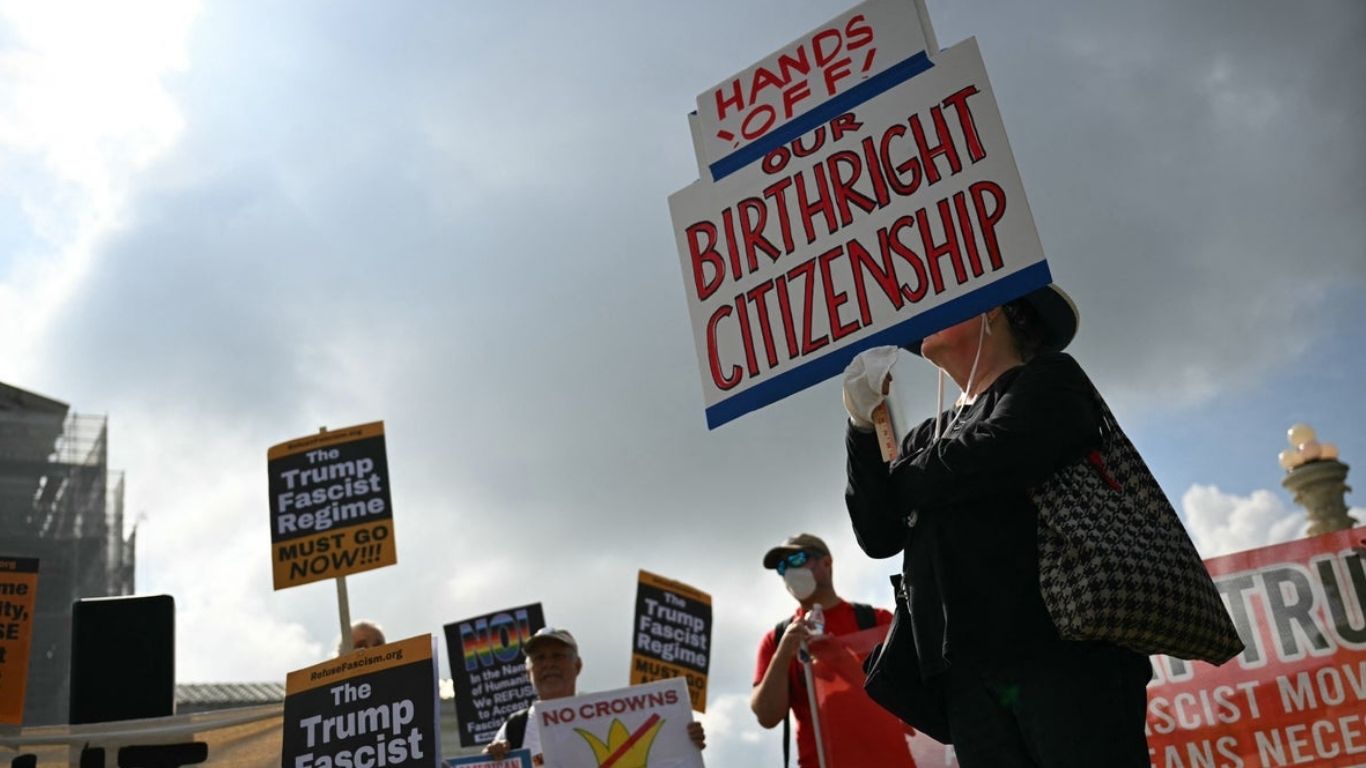Donald Trump stuns Hollywood and global film markets by proposing a 100% tariff on foreign films just one day after meeting actor Jon Voight. Industry experts weigh in on what it could mean for U.S. and international film production.
Hollywood Shaken as Trump Floats 100% Tariff on Foreign Films
In a move that has sent shockwaves through the global entertainment industry, former U.S. President Donald Trump has proposed a 100% tariff on all films produced outside the United States. The announcement came just one day after a private meeting at Mar-a-Lago with actor Jon Voight, who had presented a far more measured plan to revive American film production.
While Voight’s proposal reportedly suggested tariffs “in certain limited circumstances,” Trump’s sweeping proclamation went far beyond that—prompting confusion among Hollywood insiders, concern from international partners, and cautious optimism from some U.S. labor unions.
Jon Voight’s “Hollywood Recovery Plan” Meets Unexpected Amplification
Jon Voight, an Oscar-winning actor known for Midnight Cowboy and Heat, was recently named a “special ambassador to Hollywood” by Trump. Voight has spent months meeting with studios, guilds, unions, and streamers to shape a plan designed to bring film production back to the U.S., where it has declined sharply in recent years.
Voight’s pitch focused primarily on federal tax incentives, tax code revisions, infrastructure support, and international co-production treaties. While it did mention limited use of tariffs as a possible tool, it made no reference to the kind of across-the-board penalty Trump suddenly proposed.
In a statement following the announcement, Voight said the White House was “reviewing” his plan and added:
“The President loves the entertainment business and this country, and he will help us make Hollywood great again.”
Trump’s Surprise Tariff Plan: Industry Left Scrambling
Trump’s announcement of a 100% tariff on “films coming into our country produced in foreign lands” has raised numerous questions—chiefly, how such a policy would be defined and enforced.
Many major productions, including those by Disney and Marvel, often shoot portions overseas or complete post-production in foreign studios to take advantage of cost efficiencies and local talent. For instance, Marvel’s upcoming film Thunderbolts was primarily shot in the U.S., but also included scenes filmed in Malaysia and a score recorded in London.
Without clarification, such films could face steep tariffs—jeopardizing the hybrid production model that dominates today’s global entertainment economy.
U.S. Labor Unions Respond with Cautious Support
Despite concerns, Trump’s tariff proposal found some support from American entertainment unions.
- SAG-AFTRA, the performers union, said it supports “efforts to increase movie, television and streaming production in the U.S.” and would “advocate for policies that strengthen our competitive position.”
- IATSE, representing crew and technical workers, took a more nuanced stance. President Matthew Loeb emphasized support for federal tax incentives but warned that international trade policies must avoid harming Canadian workers and the broader industry.
International Reaction: Allies Alarmed, Markets Watchful
Trump’s announcement sparked immediate concern in key U.S. film production partners:
- In Australia, where a federal 30% rebate has helped attract major Hollywood blockbusters, Arts Minister Tony Burke vowed to “stand up unequivocally for the rights of the Australian screen industry.”
- In the United Kingdom, where U.S. productions fuel a multi-billion-pound film sector, officials and industry leaders began urgent discussions. Some warned the proposed tariff could cripple the UK’s film production economy.
Countries like Canada, New Zealand, Hungary, Italy, and Spain, which routinely serve as filming hubs for Hollywood due to favorable tax regimes and diverse landscapes, are also monitoring developments closely.
Will Trump’s Tariff Actually Happen? White House Walks Back Statement
Just days after the initial shockwave, a White House spokesperson clarified that “no final decisions on foreign film tariffs have been made.” This backtracking suggests that Trump’s proposal may be more aspirational than actionable—for now.
Nevertheless, the mere suggestion of a blanket tariff has already disrupted international conversations and brought film production incentives into the political spotlight.
The Bigger Picture: Can Hollywood Really Come Home?
Film production in Los Angeles has dropped nearly 40% over the past decade, with many projects relocating due to rising costs and better incentives abroad. U.S. states like Georgia and New York have gained market share by offering aggressive tax breaks, while international locales continue to lure big-budget films with scenic diversity and financial perks.
While Trump’s tariff talk is controversial, the underlying issue remains: How can the U.S. revitalize domestic film production without alienating global partners or stifling creative flexibility?
Voight, along with Trump-appointed “Hollywood ambassadors” Mel Gibson and Sylvester Stallone, seems poised to keep the conversation going—whether or not tariffs become part of the final script.
Conclusion: Political Theater or Policy Shift?
Whether Trump’s tariff proposal becomes law or remains campaign rhetoric, it’s already having a global impact. Hollywood is being forced to examine its reliance on foreign production, while allies and trade partners are bracing for potential fallout.
One thing is clear: the future of American film production is now squarely in the political spotlight.


